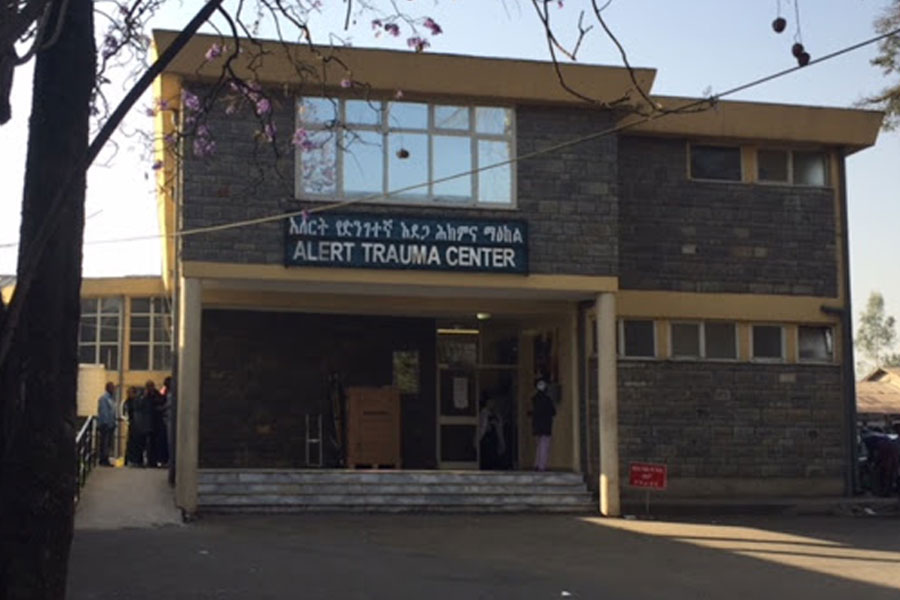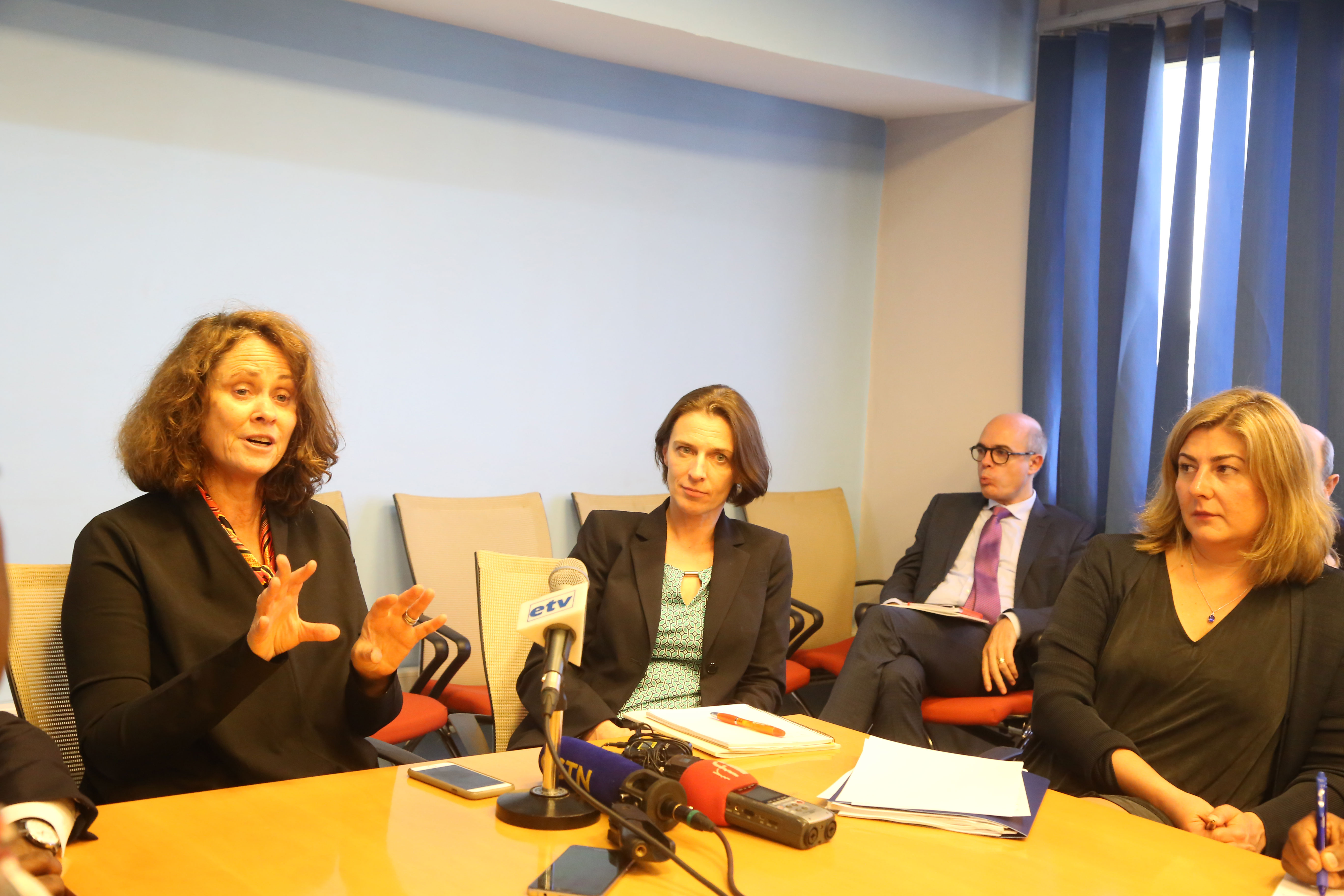
Commentaries | Feb 18,2023
Solomon Mitkiu, a member of the Ethiopian diaspora living in the Washington, DC metropolitan area is one of the many people working for Uber, the company that founded the digital ride-hailing industry, for the last year.
It has been close to two months now since he stopped working. The Novel Coronavirus (COVID-19) pandemic has required many people to shelter in their own homes, meaning less business for Uber.
Just like in wartime, people are frightened, public attitudes are changing, and the circumstances are necessitating a big expansion of the government’s role.
The mass layoffs that have resulted from the virus have also laid bare the inequalities of the gig economy, in which Uber drivers and other online platform workers, temp agency workers, and a whole variety of freelancers do not have access to health insurance, sick leave or unemployment insurance.
Just like many members of the diaspora community, Solomon regularly remits 300 to 400 dollars to his wife and kid back home in Ethiopia. Solomon also sends additional money to his family during the holidays.
Easter is one of the peak times that consumers spend money in Ethiopia. To support their families and friends, the diaspora community typically sends extra money back home during this season. But this year, things are different.
“Since I’m jobless now," he said, "I don’t think I'll be able to afford to send money.”
Banks are seeing fewer customers as a result. One of the 261 branches of Nib International Bank, located near DH Geda Tower, has been seeing a decline in the traffic of customers who need to exchange foreign currency for Birr.
The inflow of foreign exchange has been dwindling, and it is safe to say there is almost nothing coming in, according to Melese Fikre, a foreign exchange officer at the branch.
During the latest Easter holiday, the bank branch served up to three customers a day who needed to exchange foreign currency, ranging from 300 to 500 dollars. The remittances it handles comes mainly from Dubai, Saudi Arabia, Kuwait and North America.
Bold raffle advertisements of Bank of Abyssinia, located near Ramada Hotel, call out for customers to exchange foreign currency.
Between January 1 to April 15, 2020, the flow of remittances at that branch alone was 20,895 dollars, 215 euros and 75 pounds.
NIB Bank is not the only one impacted by dwindling remittances. Bank of Abyssinia is also feeling the burn.
Ayele Gebere, the branch manager of Abyssinia Bank located near Ramada Hotel, agrees that there is a significant slowdown in the inflow of foreign exchange. Since import and export activity has fallen sharply, the foreign exchange has reached rock bottom.
The prime times for the inflow of remittances is September, when the Ethiopian New Year is celebrated, Christmas, and the current season, Easter, which is widely celebrated by the community after the 55 days of Lent.
However, the foreign exchange inflow of the country was already operating at the low end of its range even before the COVID-19 outbreak. The net foreign assets of the National Bank of Ethiopia (NBE) and the commercial banks has decreased by 758 million dollars and 112.5 million dollars, respectively, in the first quarter of the current fiscal year.
Hence, the gross foreign reserve coverage stood at 1.7 months of imports of goods and non-factor services for next fiscal year.
In response to this, banks have been in a cut-throat competition to attract clients through lotteries. At Bank of Abyssinia, customers that exchange foreign currency worth over 50 dollars will receive a raffle number with a chance of winning a prize and a 25 Br mobile top-up.
"It's slightly better during the holiday, especially with SWIFT transfers," said Ayele. "On average we're serving around five people daily in the last three weeks before the holiday."
Within the second quarter of the current fiscal year, the branch has earned 106,000 dollars from remittances and transfers to accounts held by the diaspora through money transfer agents.
“It’s impossible to think about direct purchase of foreign currency by the Bank,” said Melese.
Close to a dozen money transfer agents operate in Ethiopia working with the local banks. Western Union, MoneyGram, Xpress Money and Dahabshiil are among them.
The number of financial services has grown as remittances have increased, despite the decline this past year. Although having shown a hike of over 16pc four years ago, it grew by less than a percentage point last year to 4.4 billion dollars.
The biggest bank in the nation, the state-run Commercial Bank of Ethiopia (CBE), gained one billion dollars from remittances in the first six months of the past fiscal year, accounting for 85pc of all of its foreign currency earnings.
"It is almost non-existent, and every door for foreign exchange is closing down one by one," said Asfaw Alemu, president of Dashen Bank, which netted a one billion Birr profit in the last fiscal year and opened 40 new branches.
At the end of the last fiscal year, the Bank's total assets reached 56.2 billion Br, while its total capital soared to 6.8 billion Br and paid-up capital hit 2.7 billion Br.
The reduction in remittances from abroad, which is a significant source of forex and represents six percent of GDP, has fallen by 30pc between January and March compared to the same period the previous year.
During this tough time, the Ministry of Finance expects the fallout to rise to 75pc in the period between February and June in the worst-case scenario. As the virus expands its reach with the death toll rising and the economy falling apart, measures once considered unthinkable are being adopted and not just in the health sector.
A month before, the NBE had sent a circular to all banks to serve customers who are already in the delinquent list to be able to open a letter of credit (LC), despite not being able to pay off their previous loans in foreign currency.
The new circular to all commercial banks is going to last from April 15 to June 13, 2020, to serve importers that are in the red.
“We have almost nothing to give to any of the customers with no economic activity,” said Wondoessen Teshome, president of Enat Bank, which has netted 158.8 million Br in profit, while total assets of the Bank has reached 3.5 billion Br in the last fiscal year.
The World Bank, under its baseline scenario, estimates a severe impact on the export of goods and services, and remittances are expected to widen the current account deficit by negative 0.08 percentage points. It also estimated that remittances will fall by 20pc this year. For comparison, remittances fell by only five percent during the 2007-08 financial crisis.
Remittances have been the largest source of international financial flows to Africa since 2010, accounting for about a third of total external financial inflows. They represent the most stable source of foreign currency, increasing in volume almost every year since 2010, according to a study by the African Union called "The Impact of Coronavirus on African Economy".
Remittances will also likely fall as Ethiopians abroad face difficult financial conditions and thus send less funds to families here, though this decline may be moderated by those who choose to maintain their past support or provide even greater support to their families, according to Cepheus Growth Capital Partners, an Ethiopian private equity firm.
The research also forecasts a drop in remittance inflows, contributing to a worsening of the current account this year to 4.6pc of GDP from the previous 4.2pc.
Economic recession and travel restrictions will hugely impact the amount of money that will be remitted, according to Abdulmenan Mohammed, a financial expert with close to two decades of experience.
“Moreover, remittances by institutions such as non-governmental organisations (NGOs) will be reduced, since their income depends on the economic situation of the country where they raise funds," he says. "The impact of both sources on the balance of payments and international reserves will be considerable.”
The banks will be hit by a shortage of foreign currency, according to Abdulmenan, who adds that the severity of this time, unlike previously, may be high.
"This leads to very tough competition in the area of international banking," he says, "and a significant reduction in revenues from this area of business."
In the coming few years, the growth and the performance of the banks may not be like it has been over the past decade. Since they have robust capital reserves and high-quality assets, they will make it through this, Abdulmenan predicts.
PUBLISHED ON
May 16,2020 [ VOL
21 , NO
1046]

Commentaries | Feb 18,2023

Viewpoints | Jun 03,2023

Fortune News | Jun 19,2021

Radar | Mar 23,2024

Commentaries | May 08,2021

Fortune News | Nov 21,2018

Fortune News | Mar 09,2024

Sunday with Eden | Jul 27,2019

Editorial | Aug 14,2021

Commentaries | Mar 25,2023

Dec 22 , 2024 . By TIZITA SHEWAFERAW
Charged with transforming colossal state-owned enterprises into modern and competitiv...

Aug 18 , 2024 . By AKSAH ITALO
Although predictable Yonas Zerihun's job in the ride-hailing service is not immune to...

Jul 28 , 2024 . By TIZITA SHEWAFERAW
Unhabitual, perhaps too many, Samuel Gebreyohannes, 38, used to occasionally enjoy a couple of beers at breakfast. However, he recently swit...

Jul 13 , 2024 . By AKSAH ITALO
Investors who rely on tractors, trucks, and field vehicles for commuting, transporting commodities, and f...

Oct 18 , 2025
The political establishment, notably the ruling party and its top brass, has become p...

Oct 11 , 2025
Ladislas Farago, a roving Associated Press (AP) correspondent, arrived in Ethiopia in...

Oct 4 , 2025
Eyob Tekalegn (PhD) had been in the Governor's chair for only weeks when, on Septembe...

Sep 27 , 2025
Four years into an experiment with “shock therapy” in education, the national moo...